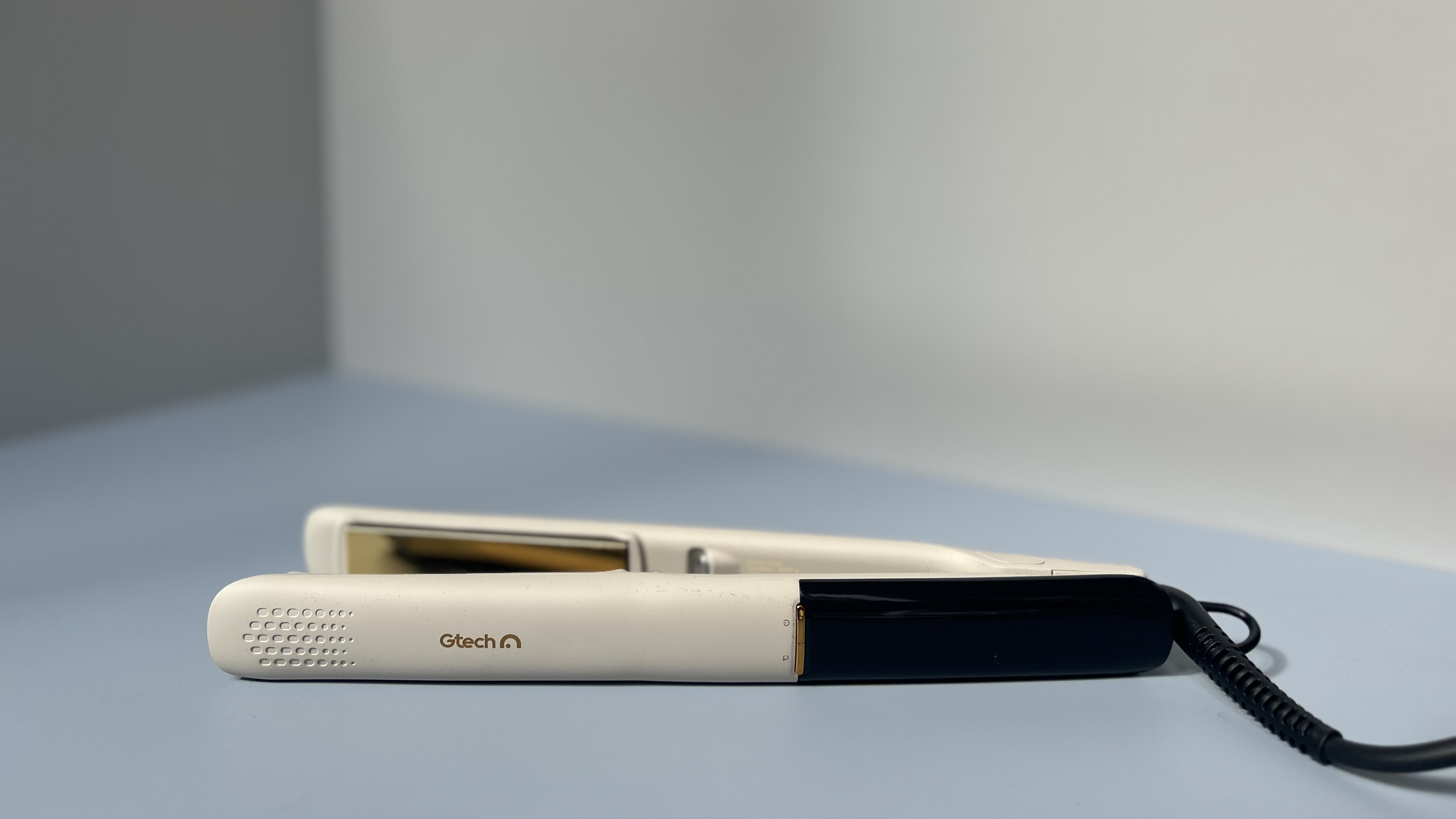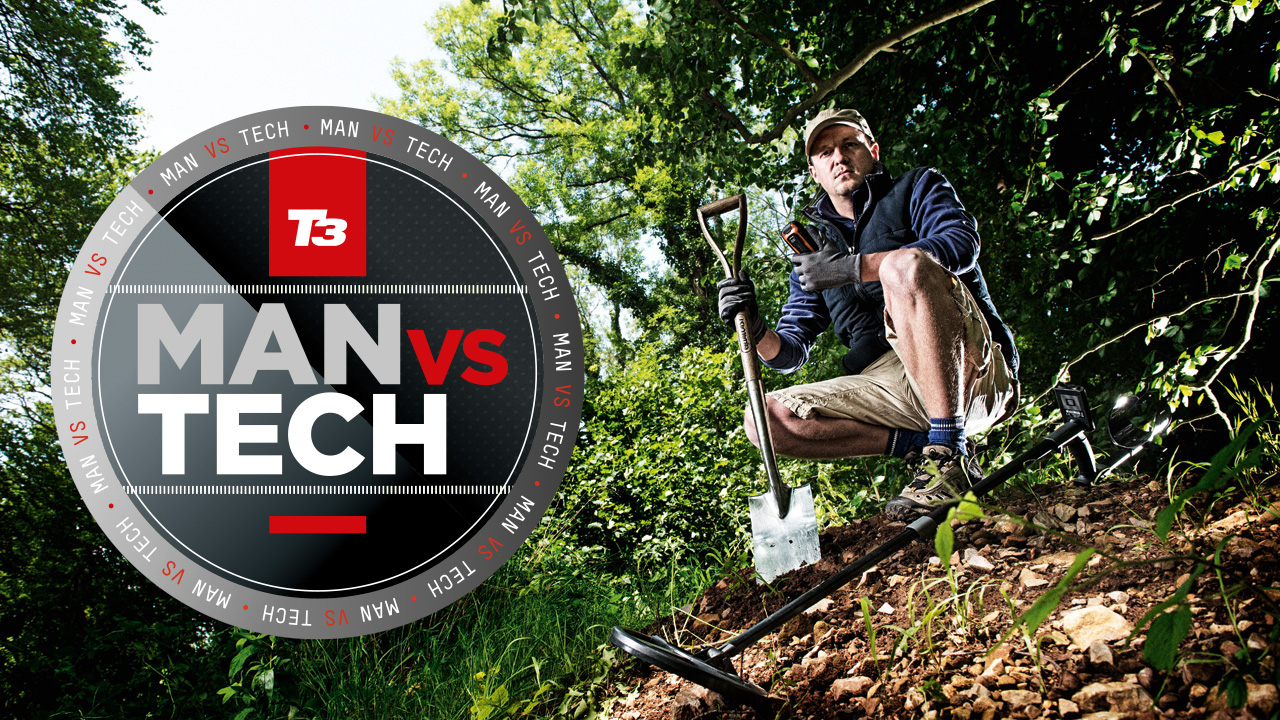
There was a time when hunting for treasure required some tatty maps and a twitchy compass. Your clues might've been left by a rum-addled pirate (X marks the spot!) or passed through local folklore over several tankards of ale. If you were lucky, you'd unearth a trove of jewels, spilling over the side like something from a cartoon. More often than not, though, your information would prove unreliable, and – far from discovering lost gold – you'd dig up a rusty can and a horse brass. Fast-forward a few decades and things are different…
Welcome to 2015, and a whole new type of treasure hunt; one that uses technology to lead you to your bounty, whatever it may be and wherever it may lie.
In our case, it's somewhere outside Bristol on the Tyntesfield estate, a Bruce Wayne-style manor house surrounded by farmy countryside and thick ancient woodland, hidden in which are a collection of 'geocaches' – weatherproof boxes whose existence and exact co-ordinates are logged on a global database, therefore making them discoverable by GPS. There are millions around the world, some of which are on National Trust sites such as this.
I know this because my phone is guiding me to one, using an app called c:geo.
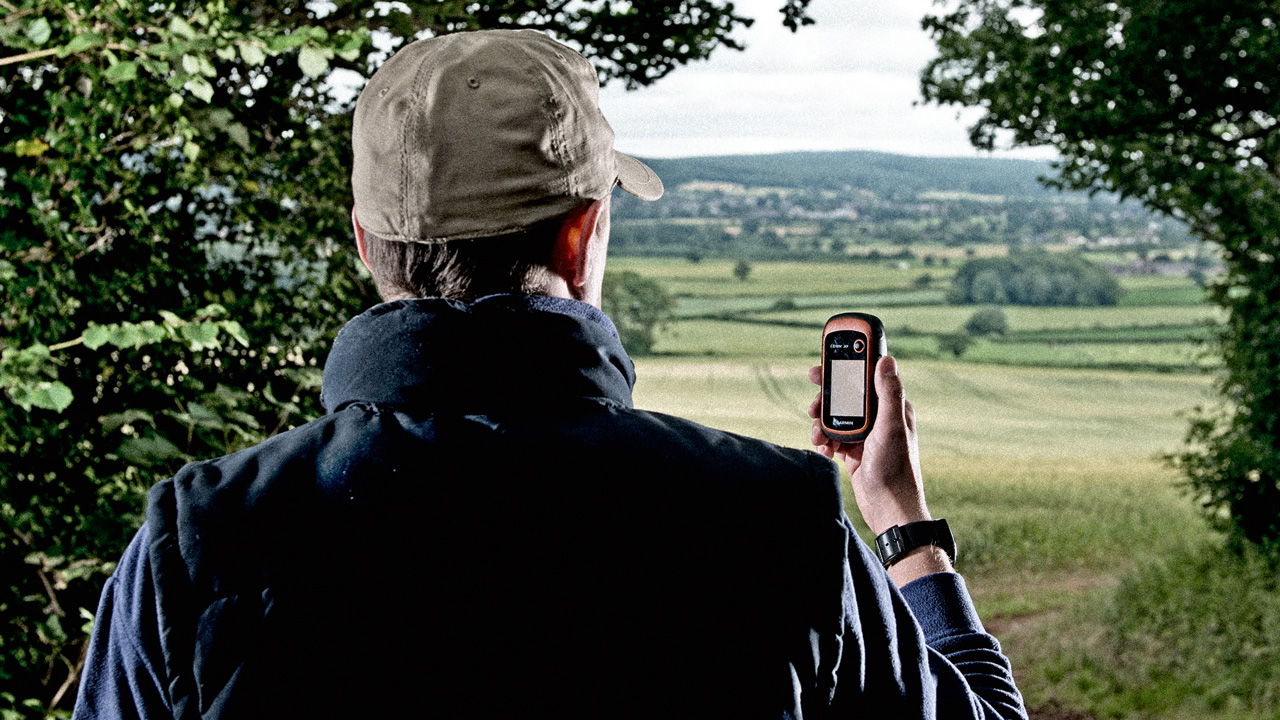
Instead of pointing north, the digi-compass points to the cache and tells me how far I am from it. When you're within a metre or two, you can either rummage around the undergrowth, follow some written hints in the app or reveal a spoiler image. Using a combination of all three, I eventually find my first cache, which turns out to be a Tupperware container hidden in a tree stump. Inside is a logbook, a toy car and a factsheet on local birdlife. And there I was, expecting a priceless silver goblet…
In the geocaching tradition, I sign the book – “T3 WOZ ERE” – and take the toy, leaving an old Samsung Galaxy in its place. We could've left a keyring, but this is the world's finest gadget magazine, so only the best will do. Talking of which, I've also brought a Garmin eTrex 20, a handheld GPS made with geocaching in mind. It runs off AA batteries, has a super-bright screen and detailed maps showing relief, plus it's waterproof, so it's more robust than your average smartphone – useful should you take your new hobby into the wilderness.
It's very easy to get hooked on this geocaching business, gripped by the hope that the last person was as generous as us. Which is why I find myself strapping on a headtorch as the daylight fades. If you're going to ramble around the woods at night looking for hidden Tupperware, you'll need a good beam. The Petzl NAO is just the job – with reactive LEDs that adjust to ambient light, a rechargeable lithium-ion battery and a maximum output of 575 lumens, it lights up the forest like that spaceship from Close Encounters Of The Third Kind.
Sign up to the T3 newsletter for smarter living straight to your inbox
Get all the latest news, reviews, deals and buying guides on gorgeous tech, home and active products from the T3 experts
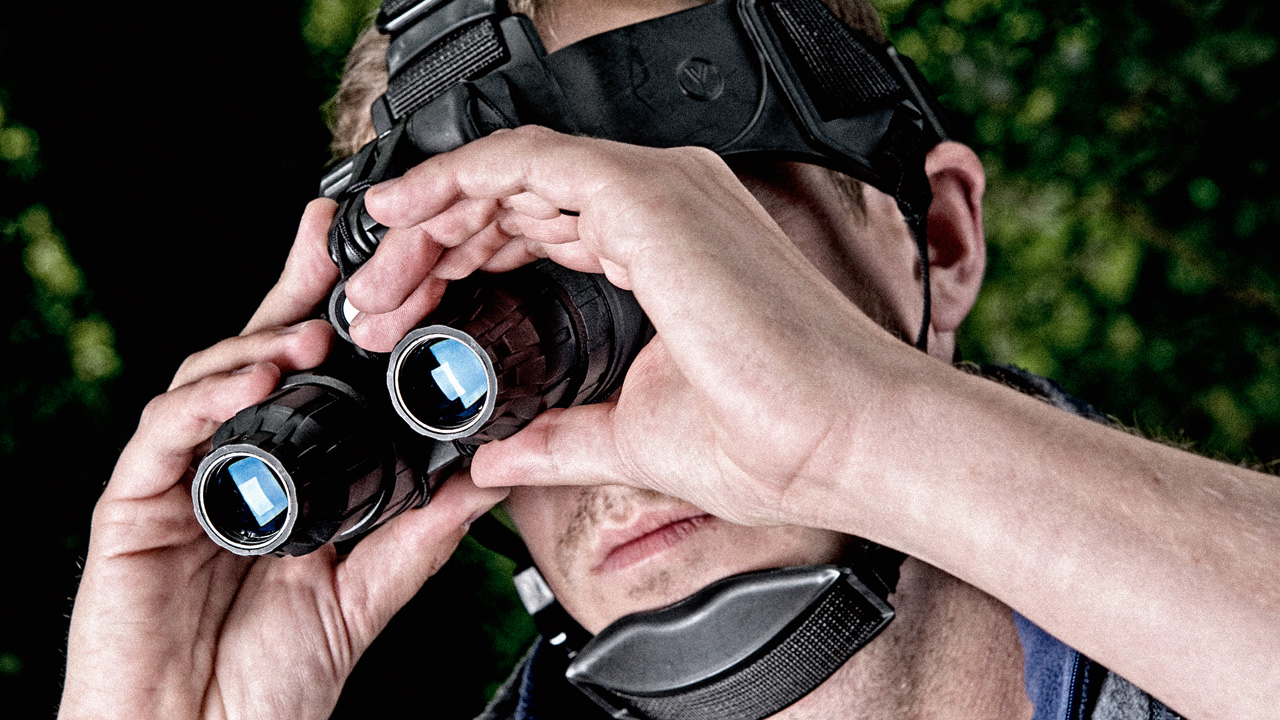
You could even take things to a slightly more predatory level with a set of night-vision goggles. You might think they require a budget to rival the US government's, but actually they're reasonably affordable. The Pulsar Edge ones I use cost £520 and fill your eyes with a bright, grey-green vision,
a bit like the night cams they use to spy on badgers in wildlife programmes. They're heavy on the head, but it's worth it for the spooky view that enables you to stride through the darkness with confidence, finding even the most well-disguised caches more easily than you would in the daytime.
After a while, you'll realise that, while geocaching might be an excellent way to explore strange corners of the countryside and learn about woodcocks and whatnot, it won't turn up much treasure. For that, you'll need a proper metal detector. At this point, we should leave National Trust property, as detectoring – as enthusiasts call it – is banned here. In fact, you'll need the landowner's permission wherever you go, or a permit if it's on a beach (get one free from the Crown Estate website).
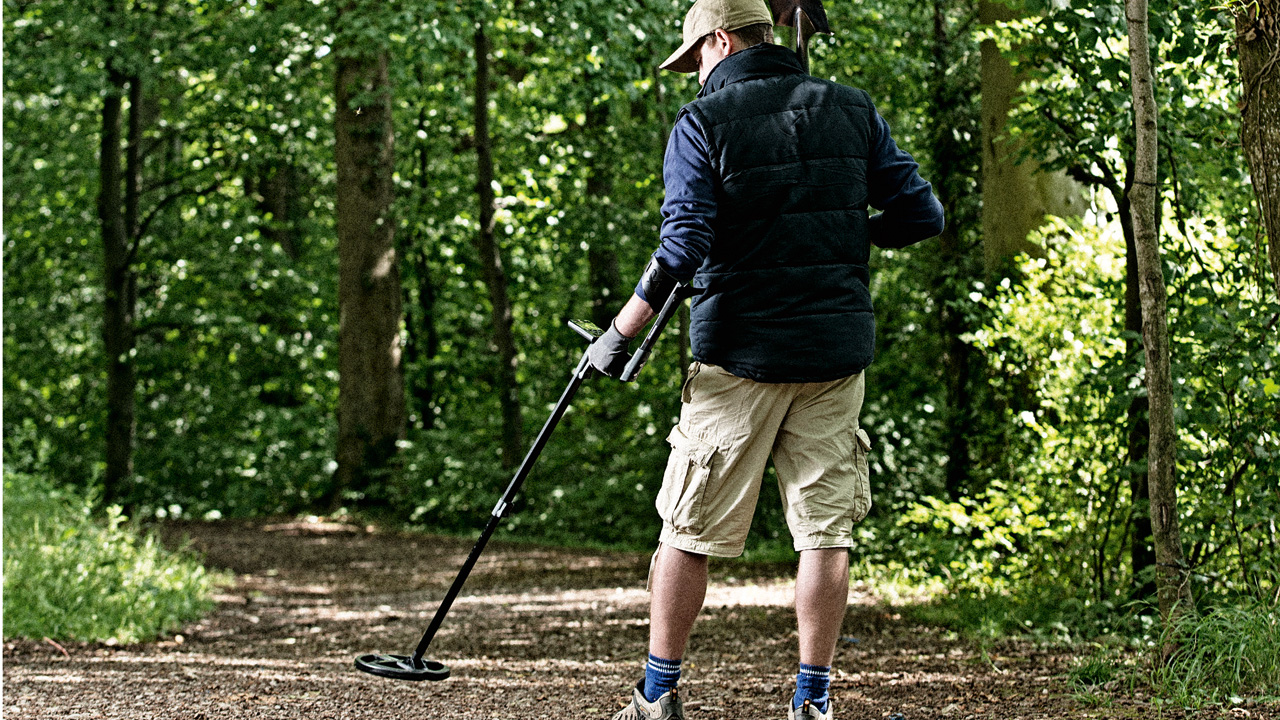
When it comes to metal detectors, the XP Deus is regarded as the best in the business, and certainly the most gadgety. For starters, it's completely wireless, so the coil talks to the controls and headphones via high-speed, reliable Wi-Fi. That means it's easy to piece together and adjust with the telescopic stem. But the best bit is the remote-control module, which clips into a holder and helps makes sense of the earth beneath, as a visual aid to the familiar bips and buzzes.
It has ten presets, which you select according to the terrain – one might be suited to sand whereas another is best for cow fields. I'm in the basic, general-purpose setting, which seems fairly idiot-proof. You wave it from side to side, almost rubbing the ground with the coil. When the central bar – running top to bottom – goes over something interesting, you hear a buzz and the screen shows a number from one to 100.
Broadly speaking, you're looking for squeaky-clean tones and a high number. Deep, spluttery sounds and low numbers could be something disappointing like a corroded screw, whereas a high-pitched 66 could be a mysterious gold ring, in which case you'd better watch out for goblins and wizards. If you think you're onto something, press the red 'pinpoint' button and the screen switches to a homing display, which helps guide you to the precise patch of soil.
At which point, it's time to bring out the most groundbreaking gadget of them all: a shovel. Digging impatiently into the earth, I reveal something silvery and shiny. Could this be it? Have I found Blackbeard's secret stash? He was from around these parts, after all. But alas, no such luck. It's an old shotgun cartridge – and a sign, I reckon, that it's time to get off the land before someone discharges another one.
T3.com is one of the UK's leading consumer lifestyle websites and T3 magazine is its print counterpart. You can follow us on Twitter, Facebook and Instagram.
We present products in helpful buying guides and carefully curated deals posts across style, living, auto, smart home, watches, travel, fitness and more. We're delighted that 38,000 people buy a copy of T3 magazine every month.

